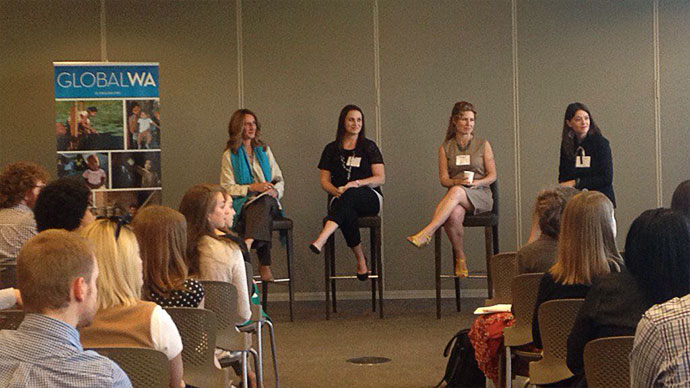Blog
Posted on July 22, 2016
By Annelise Matsuo, Membership & Events Intern, Global Washington

On July 20, 2016, Global Washington partnered with Landesa to lead a panel discussion on careers in international development, hosted at the PATH headquarters in Seattle. The discussion was moderated by Global Washington’s Executive Director, Kristen Dailey, and included Radha Friedman, Michele Frix, and Rebecca Okelo, three young professionals who have already made significant contributions to the vibrant international development community in Washington state. Friedman currently serves as Director of Programs at World Justice Project, Michele Frix is Chief of Staff at the Seattle Foundation, and Rebecca Okelo is founder and Executive Director of MED25 International.
Continue Reading
Posted on July 15, 2016
By Jacob Kobzi, Mifos Initiative

The week is almost over but the Mifos Innovation team is still hard at work in Ecuador.
The day started with the Innovation Team meeting with an organization that oversees a network of cooperatives. The biggest takeaway from the meeting was that the organization sees the value that the Mifo’s Financial Inclusion Cloud can bring to their network of financial institutions.
Continue Reading
Posted on June 16, 2016

Do you know someone doing great work connecting the Seattle area to the rest of the world?
Someone whose tireless efforts embody the values of the Seattle Globalist: creativity, diversity, open-mindedness, social & economic justice, humanitarianism and community development?
Help choose the 2016 Globalist of the Year by nominating a change-maker in your community. It’s as simple as filling out this quick nomination form.
The winner will be honored at the Globie Awards on October 14, 2016 at the Georgetown Ballroom. Click here to buy tickets for the party!


